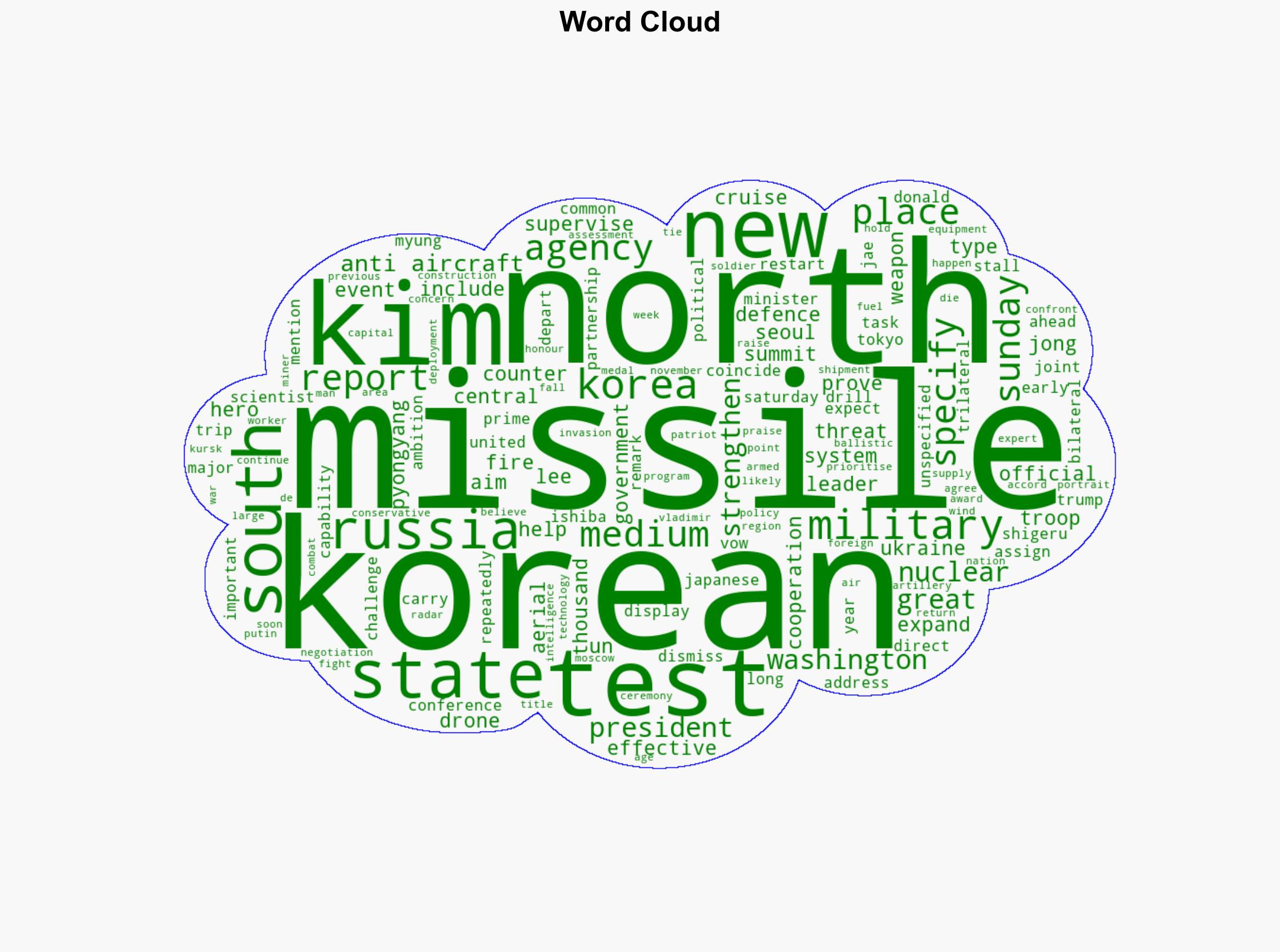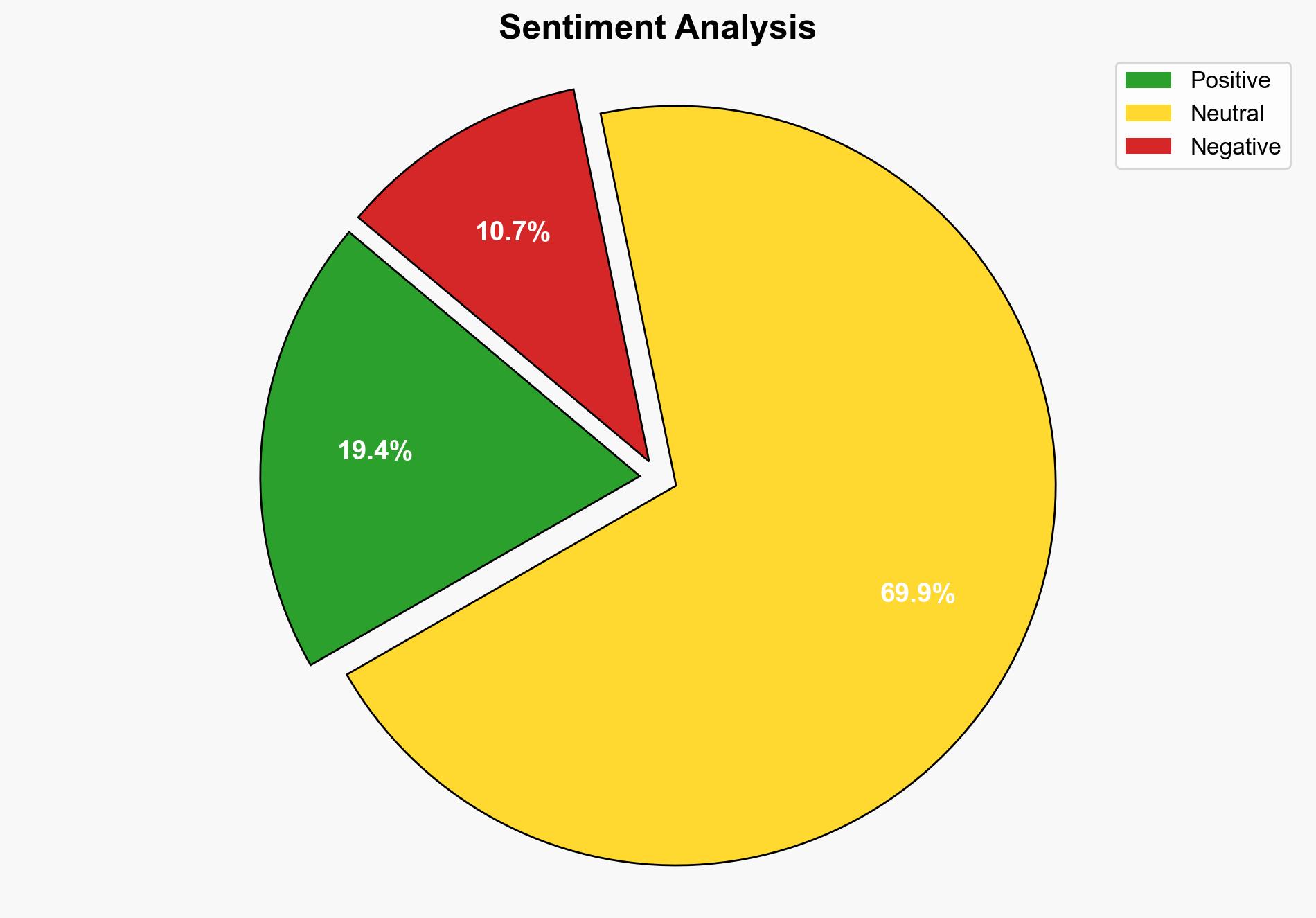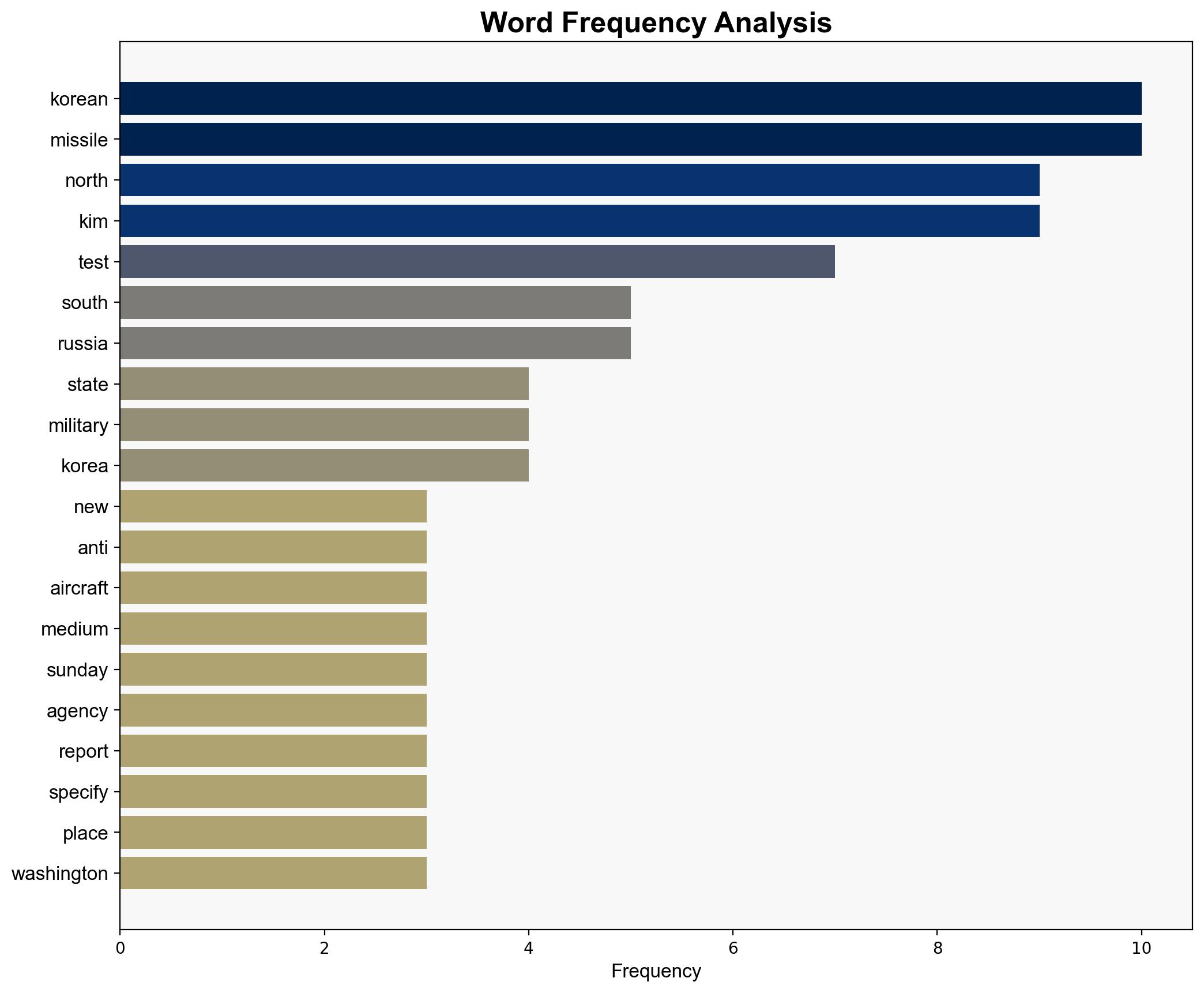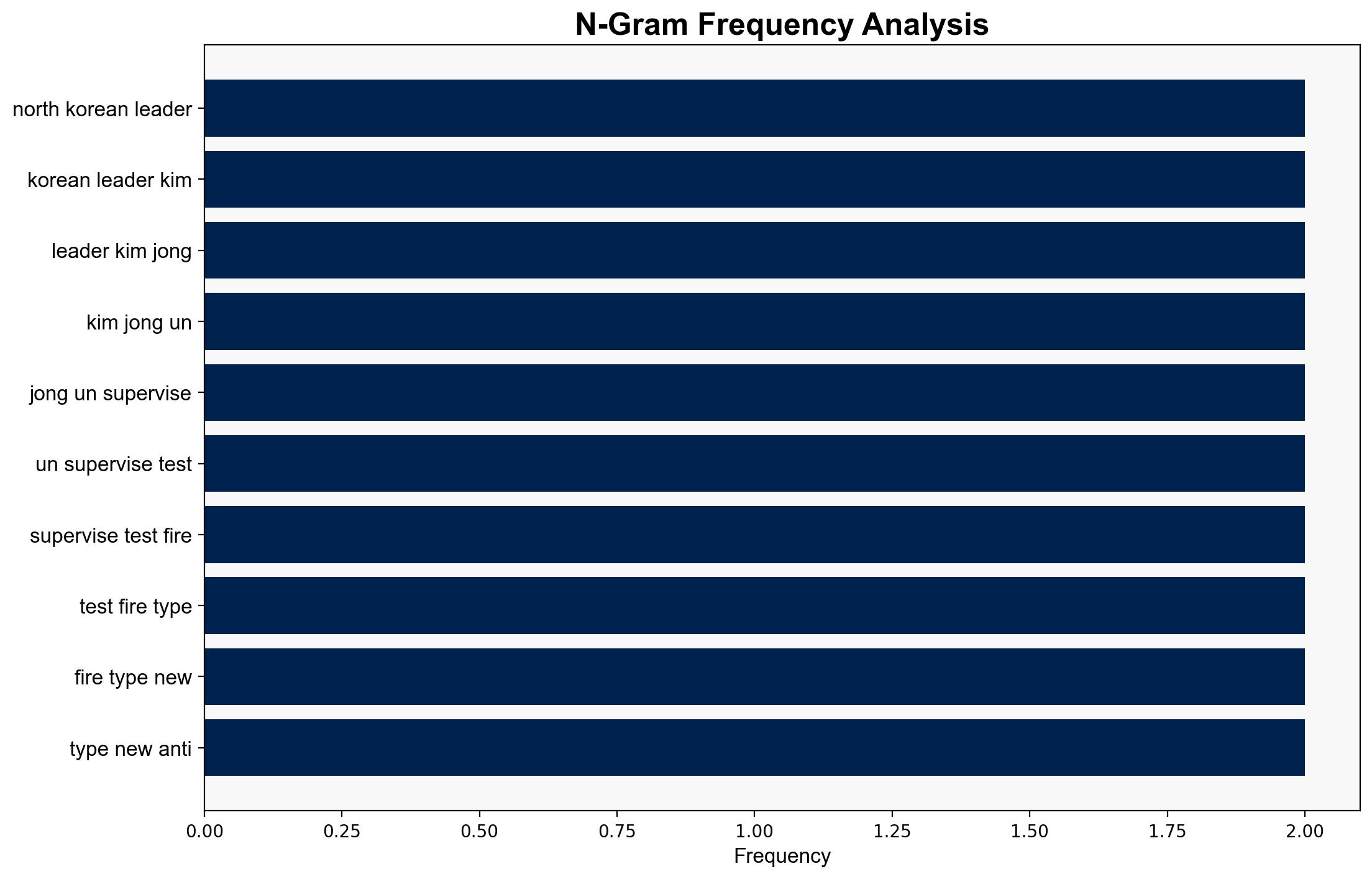North Korean leader Kim Jong Un supervises test of new anti-aircraft missiles – ABC News (AU)
Published on: 2025-08-24
Intelligence Report: North Korean leader Kim Jong Un supervises test of new anti-aircraft missiles – ABC News (AU)
1. BLUF (Bottom Line Up Front)
The most supported hypothesis is that North Korea is enhancing its military capabilities to counter perceived threats and leverage geopolitical tensions for strategic gains. Confidence level: Moderate. Recommended action: Increase diplomatic engagement and intelligence sharing among allied nations to monitor North Korea’s military developments and potential collaborations with Russia.
2. Competing Hypotheses
Hypothesis 1: North Korea’s missile test is primarily aimed at showcasing military strength and deterring external threats, particularly from South Korea and the United States. This aligns with Kim Jong Un’s strategic focus on military expansion and self-defense.
Hypothesis 2: The missile test is a strategic move to strengthen ties with Russia by demonstrating military capabilities that could support Russian interests, particularly in the context of the Ukraine conflict. This could involve technology exchanges or military support agreements.
Using ACH 2.0, Hypothesis 1 is better supported by the consistent pattern of North Korean military tests coinciding with regional diplomatic activities and military drills. Hypothesis 2, while plausible, lacks direct evidence of explicit agreements between North Korea and Russia regarding military collaboration.
3. Key Assumptions and Red Flags
Assumptions for Hypothesis 1 include the belief that North Korea perceives a direct threat from South Korea and the U.S., driving its military enhancements. For Hypothesis 2, it assumes that North Korea is willing to risk international isolation for closer ties with Russia.
Red flags include the lack of specific details on the missile technology and the absence of corroborative evidence of direct North Korean military support to Russia. The timing of the test with regional diplomatic events suggests potential signaling rather than direct military collaboration.
4. Implications and Strategic Risks
The missile test could escalate regional tensions, prompting a military buildup by South Korea and its allies. There is a risk of miscalculation leading to conflict, particularly if North Korea perceives increased military drills as a threat. Economically, sanctions could tighten, impacting North Korea’s already strained economy. Geopolitically, closer North Korea-Russia ties could complicate diplomatic efforts aimed at denuclearization.
5. Recommendations and Outlook
- Enhance intelligence sharing among allies to monitor North Korean military activities and potential collaborations with Russia.
- Engage in diplomatic efforts to de-escalate tensions, focusing on confidence-building measures in the region.
- Scenario-based projections:
- Best Case: Diplomatic engagement leads to a freeze in North Korean missile tests and renewed talks on denuclearization.
- Worst Case: Increased military provocations lead to a regional arms race and heightened risk of conflict.
- Most Likely: Continued missile tests and military enhancements by North Korea, with periodic diplomatic engagements that yield limited progress.
6. Key Individuals and Entities
Kim Jong Un, Lee Jae Myung, Shigeru Ishiba, Vladimir Putin
7. Thematic Tags
national security threats, military escalation, regional stability, geopolitical strategy




